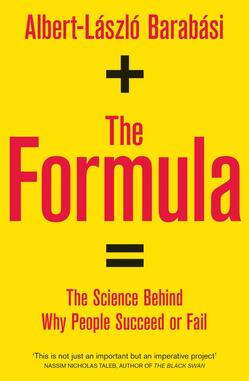 Photo by Ingrid Hall on Unsplash Photo by Ingrid Hall on Unsplash A few weeks ago, one of the first students I ever worked with reached out to me. He wasn’t sure I would remember him, but he had moved back to the Bay Area after graduating from college and was hoping we could grab coffee. I, of course, remembered him, and could not have been more thrilled to hear that he was living locally. We made plans to meet up over the Thanksgiving break and catch up. Over coffee, he told me about his four years at Wesleyan, about finding his people, about growing the Middle Eastern Student Union from eight to twenty-five students, about moving from his intended major of math to government, about organizing an event on Yemeni politics where the former US ambassador to Yemen came to speak. He told me about getting invited to apply for Teach for America, which he did, and how he loved it so much he couldn’t imagine doing anything else right now. And he couldn’t stop talking about his funny, energetic, and endearing class of fourth-graders. I was so impressed with everything he’d accomplished in the last four years, and so proud of him for continuing to take risks and try new things, even when he wasn’t sure exactly where it would lead. It was a unique pleasure to get to see both sides of the story I try to tell here, to know this young man as both a 17-year-old and as a new professional. I usually only get to see one or the other. Like most of the people I profile in this blog, college took him in new and unexpected directions. And as I try to encourage my students to do, he stayed open and enthusiastic about those unknowns. That openness is exactly what led him to move across the country, away from his family, to a small college town on the East Coast, where he saw himself become a new person. That openness is exactly what brought him to teach fourth grade at a school just nine miles from where he grew up. And that openness is exactly what will take him down paths neither of us can even imagine right now.
0 Comments
 In my first couple of years at Collegewise, my coworker, Casey, and I would make a video to send out to all our families before the Thanksgiving holiday. It was pretty low-budget and a bit embarrassing now that we have a full-time, dedicated Collegewise filmmaker. But the spirit of that video is something that I’m still proud of: a call to all our families and students to celebrate every acceptance to college. This is a big philosophy at Collegewise, something that our founder, Kevin, engrained in me right away at training. He talked about how easy it is for students to brush aside the acceptances to their safety and even target schools while they wait to hear from their early decision and reach schools. But every time you get accepted to college, it’s a big deal, regardless of how surprising it is. Every acceptance to college is an acknowledgment of the effort you’ve devoted to excelling in your classes, the times you chose to stretch yourself in an advanced or honors course, and the wisdom you showed in taking a step back when you needed to. It’s an acknowledgment of the evenings and weekends and summers you spent on the football field or at band practice or working on the school paper. It’s an acknowledgment of the immense vulnerability you’ve shown in your personal statement and the detailed research you’ve completed for each college. It’s an acknowledgment of the years-long relationships you’ve cultivated with teachers and counselors who were willing to spend hours of their personal time crafting letters of recommendation for you. It’s a college inviting you to be a part of their community, not just for the next four years, but for the rest of your life. That’s a big deal and deserves to be celebrated. The other reason I encourage my students to celebrate every acceptance is because I genuinely believe that they can be happy and successful at every school on their lists. I know that it’s the student that makes their college experience extraordinary, not the university. Research shows that the average freshman retention rate is 72% and 80% for public and private four-year universities, respectively. That’s a good indication that the vast majority of students are happy at the college they decided to attend – reach, target, or safety. So as those acceptances start to arrive, remember to celebrate every single one of them. You earned it.  Photo by Prateek Katyal on Unsplash Photo by Prateek Katyal on Unsplash Earlier this week, Instagram announced that it would start hiding “likes” on accounts in the US. It’s a move they’ve already tested in Australia, Canada, and Japan in an effort to shift the focus away from product placement and influencing back to just sharing images of people’s lives. There are more generous and more cynical ways of viewing this decision, but either way, Instagram may no longer be our steady source of validation and ego-boosting (among other things). This caught my attention this week after chatting with one of my seniors who is just wrapping up his college applications. I expected our last meeting to be celebratory and relaxed, tying up loose ends and sharing our plans for the holidays. But instead, he threw me a curveball: “I’m thinking about applying to a few more schools.” When I asked him why, he didn’t have a specific answer. It was a little bit of, “To see if I can get in,” and, “Since I have the time.” We discussed his top choice schools, and he mentioned one college he had already been admitted to. When I pointed out that he had already been accepted to a school that he liked more than the colleges he was considering applying to, he immediately recognized the irrationality. We ultimately landed on the same page, agreeing that more applications were not necessarily a good idea. But as we continued chatting, I started to understand where the impulse was coming from. He mentioned that he had already been admitted to three schools on his list; this is great news, but not surprising considering that these schools were on the safety side of his list. He explained to me that because he was getting such good feedback on his applications, he thought he should try his luck at a few more schools. He mentioned that he had even been looking at the application for Harvard. And it dawned on me that getting admitted to college feels a little bit like getting “likes” on Instagram. There have been extensive studies on the way social media affects us, how the same parts of your brain are activated when you get likes or eat chocolate or win money. And I can see the similarities between likes and college acceptances: everybody’s doing it, it’s similarly unpredictable, and it’s a pleasurable nod of approval. And in the same way, the number of likes you get on Instagram and the number of colleges you get admitted to don’t really matter. Yes, it’s a really big deal to get admitted to college. And it’s really important to get admitted to a college you like and can afford. But aside from that, it doesn’t matter if you have one school to choose from or 12. You don’t get a special sticker on your diploma that says you graduated from X University, but you were actually admitted to a bunch of other schools. No one writes the colleges they were accepted to on their resume – just the college they attended. And you’ll never be asked in an interview to list all the places you got admitted back when you were in high school; they just want to know what interesting and impactful things you’ve been doing since then. So while it might seem exciting to submit one more application and see if you can get one more acceptance, ask yourself why you’re doing it. If you’ve discovered a school you genuinely love that offers different opportunities from the schools you’re already applying to, it might be worth adding to the list. But if you’re doing it for the likes, maybe post a selfie on Instagram instead.  Success can sometimes seem a bit random – is it the idea itself, the person bringing that product or service to the world, or is it just some magical confluence of variables that results in that big, universal yes? Northeastern University professor, Albert-László Barabási, argues in his new book, The Formula: The Universal Laws of Success, that success is not only not random, it’s actually predictable using a simple equation. S = Qr S or “Success” is simply the product of a person’s Q-factor and r, a random idea. The Q-factor is a quantification of each person’s ability to execute an idea; think Jeff Bezos creating Amazon, Simone Biles routinely defying gravity, or Oprah Winfrey doing pretty much anything she wants. But Barabási argues that a high Q-factor alone is not enough to make an idea successful. Oprah’s 1998 film adaptation of Toni Morrison’s Beloved only made a fraction of what it cost to make, and despite generally positive reviews, it’s broadly considered a flop. She also got fired from her first big break co-anchoring the 6 o’clock news. Not even Oprah could pull success from those events. A high r quotient is also not enough. Barabási references Apple’s Newton, an early personal digital assistant similar to the PalmPilot, that got pulled from production after just five years. Even though it was a good idea, poor execution in the form of technical issues and high prices prevented it from ever taking off. So a truly successful event comes from that combination of a great idea in just the right hands: Steve Jobs developing the successor to the Newton – the iPhone, Oprah hosting her culture-changing television show for 25 years, J.K. Rowling creating one of the most successful book to movie to theme park franchises of all time. Great idea, great execution, peak success. But it’s Barabási’s larger takeaway that really caught my attention: “Once my team and I figured out how to measure a scientist’s Q-factor, we learned it remained unchanged throughout her career. […] If you are repeatedly failing at breaking through, you may very well be pursuing the wrong vocation. Once you find that perfect fit, that area or profession where your Q-factor shines, there’s really only one more thing you need to do: not give up.” Barabási goes on to highlight numerous people who’ve found success later in life, something I’ve talked about before. Maybe they just needed to find that right r idea, or maybe they needed to move into a field that better fits their Q-factor. Either way, there is no expiration date on success. You just have to keep trying.  Photo by Avery Evans on Unsplash Photo by Avery Evans on Unsplash Last week, I had a meeting with a new student. She’s a junior, so we’re just starting to dig into what she’s interested in, where she’s been most successful in high school, and the different paths she can imagine herself exploring in college. It’s a pleasant break from the extreme efficiency of my meetings with my seniors, just getting to have a luxurious conversation about ideas and questions. As we chatted about her current classes and which ones she’s particularly enjoying, she started talking about this year’s religion class. She described the lengthy discussions on ethical issues that spurred heated debates between her classmates. She described going on Wikipedia to read about topics that had come up in class that she wanted to understand better. It was clear that this subject was one she was genuinely interested in – not so that she could get an A in the class but because it captured her curiosity. I made a casual comment about how she might want to take a philosophy class when she got to college since she had enjoyed wrestling with these open-ended questions so much. She replied that she probably wouldn’t because one of her teachers told her not to study philosophy in college because you can’t get a job. And then I – gulp – went on a bit of a tirade. Who knows if this was a faithful translation of what this teacher said, or if it was a teenage oversimplification. And, yes, I can recognize that ZipRecruiter is not teeming with listings for “philosophers” specifically. But nothing makes me crazier than the idea that some majors are “good” and some majors are “bad.” So like any good liberal arts major, I did some research, and I found a whole bunch of cool people who majored in philosophy and managed to get jobs.
|
What is the When I Was 17 Project?When I Was 17 is a blog series dedicated to collecting the varied stories of people's career paths, what they envisioned themselves doing when they were teenagers and how that evolved over the course of their lives. I started this project with the goal of illustrating that it's okay not to know exactly what you want to do when you're 17; many successful people didn't, and these are a few of their stories.
Archives
October 2020
|